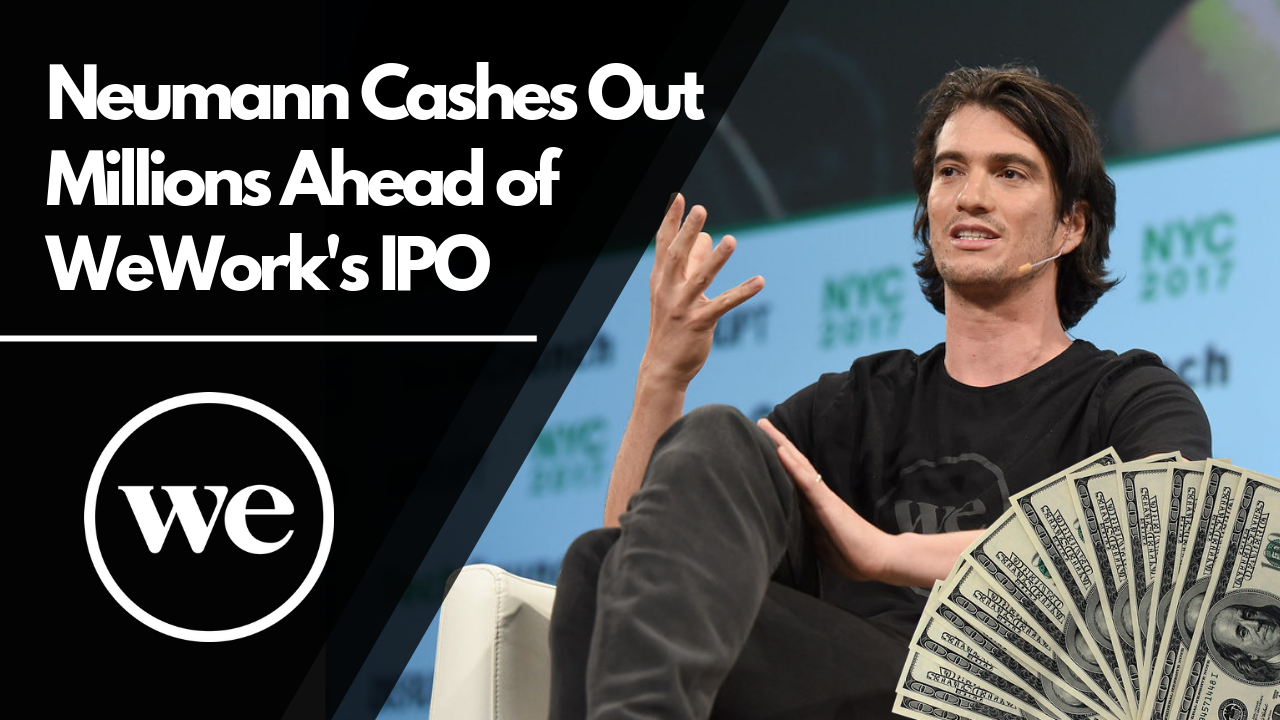- WeWork CEO, Adam Neumann, cashed out over $700 million from The We Company ahead of the company’s IPO.
- Neumann’s move is unusual, as founders who want to support their stock and shareholders typically wait until after the IPO to liquidate holdings.
- The move could signify lack of confidence in the company’s IPO performance, although Neumann appears bullish on the company’s long-term prospects.
Several news sources reported yesterday that WeWork’s CEO and Founder, Adam Neumann, cashed out over $700 million from The We Company ahead of the company’s planned IPO. Neumann’s move is unusual among founders seeking an IPO, as they typically wait until after the IPO to liquidate holdings in order to support their shareholders.
Neumann sold a mix of stock and debt yet according to the Wall Street Journal he remains the company’s single largest shareholder.
Lack of Confidence
The move could well signify lack of confidence in the company’s IPO performance.
“Investors in startups have generally frowned upon founders who cash out large chunks of shares ahead of a public-markets debut, because it raises questions about their confidence in the company,” the WSJ wrote.
WeWork’s valuation ($47 billion) has been widely contested by experts, especially considering the company leases office space and then sub-leases it on short-term agreements. Founded in 2010, the company hasn’t yet turned a profit and it has also been highly criticized for its whopping losses — which totaled almost $2 billion in 2018 alone and totaled $220 million in the first quarter of 2019 before interest, tax, depreciation, and amortization.
Still, the WSJ reported that “people close to Mr. Neumann say his borrowings against some of his WeWork shares indicate that he is bullish on the company’s long-term prospects.” Andrea Walne, a partner at Manhattan Venture Partners, told the WSJ that “over the last five years there’s been a growing level of comfort among the VC community to let founders sell.”
However, Neumann’s move does raise some red flags, especially taking into consideration how other unicorns that went public this year have underperformed.
“Uber and Lyft were the largest and most anticipated of the parade of highly valued tech companies which have gone public this year. They were also the biggest flops,” The New York Times wrote earlier this year.
Their underperformance isn’t due to the market, as “the I.P.O market is having a great year”. Instead, the NYT argues that “the struggles of Uber and Lyft have much more to do with their financial performance and less to do with the market.”
Uber and Lyft went public without having profits and “shares of both companies are trading well below their I.P.O price”.
The We Company is also planning on going public without being profitable, and it even recently announced it would seek to raise as much as $4 billion in additional debt ahead of the IPO. According to the NYT, Uber and Lyft have shed about $25 billion in market value since their IPOs. The We Company could be facing a similar fate to that of Lyft and Uber.
Is WeWork’s Bubble Bursting?
When the coworking giant filed the paperwork for an IPO, it was argued that the company would need to justify its lofty valuation. Last year, WeWork raised $1 billion in debt from SoftBank; those bonds were trading at sub-par value almost immediately after the sale.
This year, investors’ confidence in WeWork dropped and SoftBank slashed its $16 billion investment in WeWork to $2 billion.
Neumann’s $700 million cash out could possibly mean that it’s not just investors who lack confidence in the company’s long-term success. Which begs the question, is Adam Neumann unsure the company will be able to justify its $47 billion valuation in the public market?
















